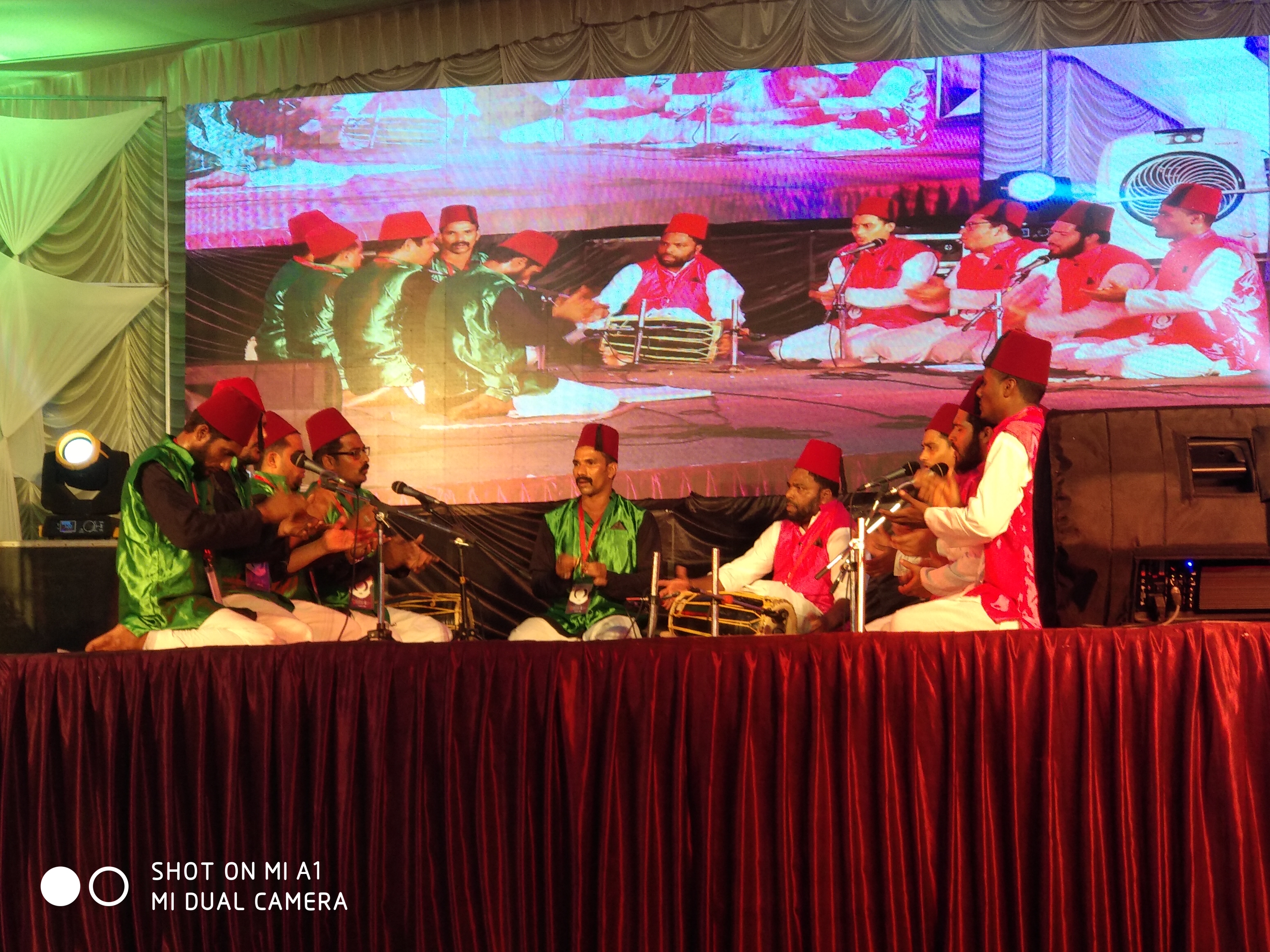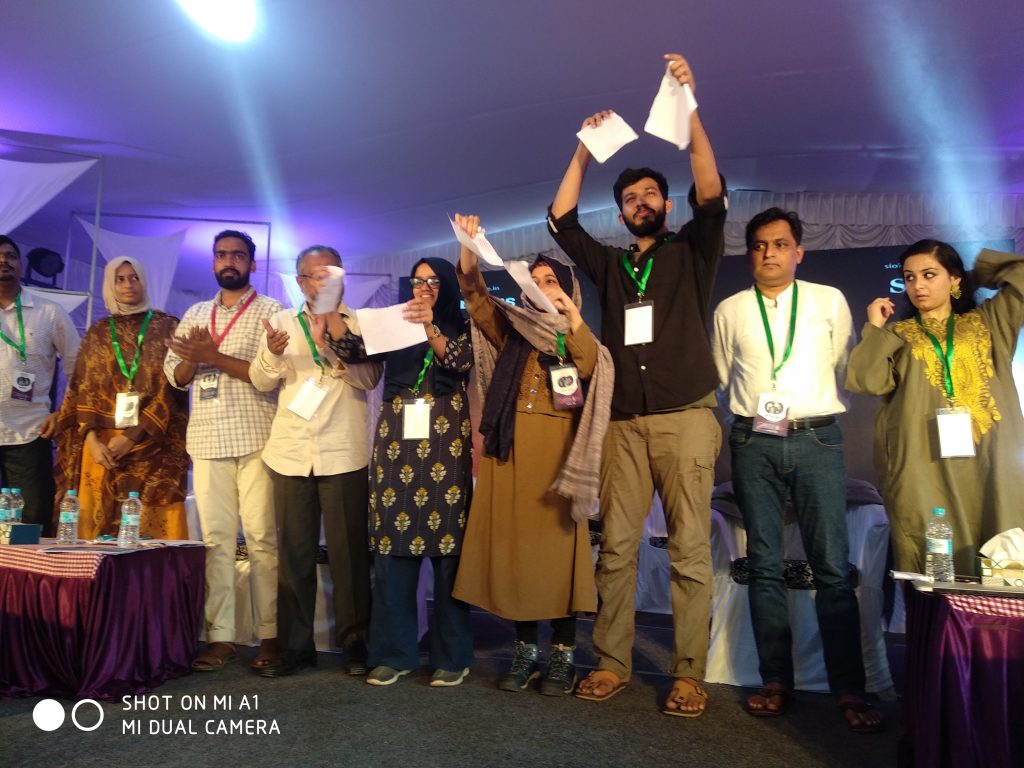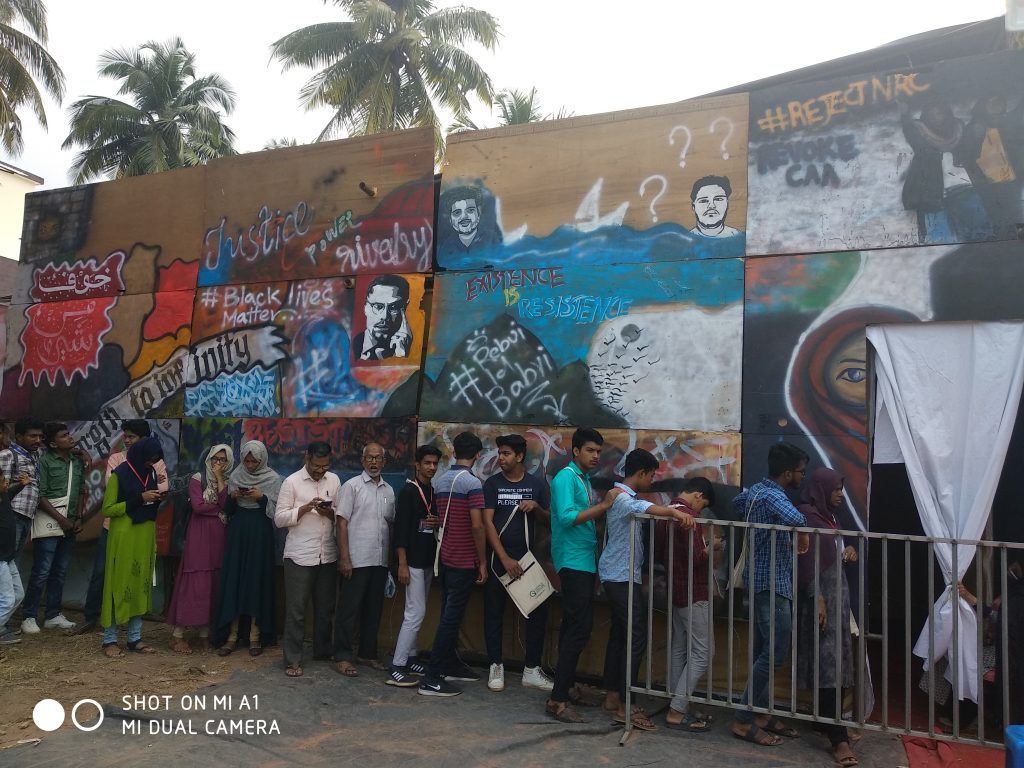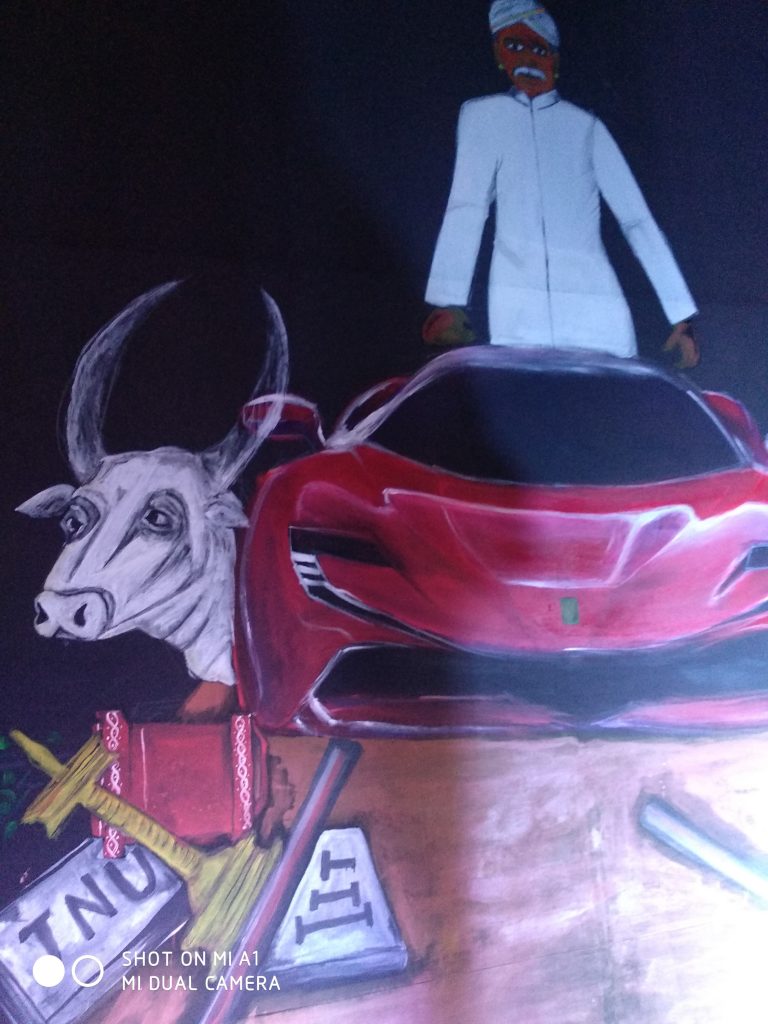Festival of ideas and resistance held in Calicut

By Najiya O, TwoCircles.net
A festival of art, culture and ideas which reminded that the youth is all the more aware of the world around them and is not ready to take rest – that was the Festival of Ideas and Resistance held in Calicut from December 27 to 29, 2019. The three-day fest organized by the Students Islamic Movement and the Campus Alive magazine was inaugurated by Aysha Renna, Ladeeda Farzana and Shaheen Abdulla, the students of Jamia Millia Islamiya in the forefront of the protest against the Citizenship Amendment Act and the National Register of Citizens. The students inaugurated the fest by tearing off copies of the CAA. ‘If we don’t talk against the fascist acts of the government now, then when will we talk?’, asked Renna. Ladeeda said that even the liberals opine student leaders should come up from only left, liberal and savarna frameworks. Shaheen asserted that the protest would continue till the Sangh Parivar government is brought down.
The festival book was released by Sanna Irshad Mattoo, Kashmiri journalist and photographer. Prof Irfan Ahmed (senior research fellow at the Max Planck Institute, Germany), T Arifali (Jamat e Islami national general secretary), Salih Kottappalli (SIO state president), Shiyas Perumathura (festival director) and Faheem Ali (editor, Campus Alive) spoke. Nahas Mala (president, Solidarity Youth Movement) and Afeeda Ahmed (GIO state president) were also present.
[caption id="attachment_433876" align="alignnone" width="696"] Aysha Renna, Ladeeda Farzana and Shaheen Abdulla inaugurating the fest tearing off copies of the CAA[/caption]
Aysha Renna, Ladeeda Farzana and Shaheen Abdulla inaugurating the fest tearing off copies of the CAA[/caption]
The mainstream media and cinema talk only about the natural beauty of Kashmir, and not about the Kashmiri people and their lives, said Sanna Irshad Mattoo while speaking at the session on ‘region, imagination and development’. Sameel Illikkal (Madhyamam daily senior sub-editor), Dr Salah Punathil (post-doctoral fellow at Max Planck Institute), Shyma Pacha (assistant professor, Payyannur College) etc also spoke.
Student leaders and activists from different campuses attended the panel discussion on ‘Subaltern studentdom in Indian campuses’. Sumeet Samos (student activist and rap artist, alumnus of the JNU), Faseeh Ahmed EK and Asha Sasidharan (Hyderabad Central University), Srutheesh Kannadi (Central University of Pondicherry), Heba Ahmed (JNU), Aysha Renna (JMI), Jabbar Chungathara (EFLU, Hyderabad), Mubarak Farooq (AMU), Salwa Abdulkader (student activist from Kerala), Shamseer Ibrahim (Fraternity Movement Kerala president) and Shabeer Koduvally (SIO national campus secretary) spoke at the session moderated by Sidheeq Rasheed (JNU).
Grace Banu, founder of Trans Rights Now Collective, said that casteism was present among the trans-community also. Speaking at the session ‘Social democracy and annihilation of caste’, she said that the trans-community has to fight against patriarchy, anti-trans movements and casteism inside the community. Vineetha Vijayan, research scholar and social activist, explained the casteist nature of the Kerala society giving the examples of the caste wall at Vadayampadi, the issues associated with the funeral and burial of artist Asanthan and the incident in which Dalit families were not allowed to use a public pond at Varkkala in Thiruvananthapuram. AS Ajith Kumar, writer and music composer, opined that conversion was a useful and radical method in the fight against casteism. Jyothi Nisha (writer, producer and director at the BR Ambedkar Now and Then), Dr B Ravichandran (founder of Dalit Camera), Dr Narayan M Shankaran (lecturer, WMO Arts and Science College, Wayanad) and Srutheesh Kannadi (research scholar at the Central University of Pondicherry) also spoke at the session.
The Muslim community should financially support films, said Harshad, film director and script writer, in the session ‘Cinema after cinema’. “Commercial cinema is all about being successful. There won’t be any problem if a story with good content, even if it includes all the politics, is told in a way that it becomes successful,” he added, mentioning the success of ‘Sudani from Nigeria’. Zakariya Muhammed (director and actor), Muhsin Parari (director and scriptwriter), Leela Santhosh (independent film maker), Jyothi Nisha (BRANT), Dr Shafeek Valancheri (post-doctoral fellow at Manipal Centre for Humanities, Manipal Academy of Higher Education), Shyma Pacha and Adv Hashir K Muhammed (documentary director) spoke at the session moderated by M Noushad.
[caption id="attachment_433875" align="alignnone" width="696"] Waiting in queue to enter the Exhibition hall[/caption]
Waiting in queue to enter the Exhibition hall[/caption]
There were sessions on ‘history, myth and contemporary politics in India’, ‘fascism and ethno-nationalism in India’, ‘Kerala Muslim tradition: modernity and beyond’, ‘on being Indian Muslim’, ‘science and other forms of knowledge’, ‘knowledge, power and social transformation’, ‘Islamism: as a praxis and discursive tradition’, ‘literature and marginalized subjectivities’, ‘talking Kashmir: the art of resistance’, ‘law, religion and secularism: thinking about an alternative jurisprudence’, ‘debating gender discourses’ and ‘tradition, knowledge and contemporary Islam’ among others.
Dr Sherin BS (assistant professor, EFLU), Dr Bhangya Bhukya (author, historian and lecturer at HCU), Yousuf Shaikh Skybaba (Telugu storywriter, poet and journalist), Manghlu Sreedhar (social worker, Kanavu Gurukulam), Dr Jenny Rowena (assistant professor, department of English, DU), Dr Tenepalli Hari (associate professor, department of political science, Central University of Assam), O Abdurahman (group editor, Madhyamam and MediaOne), Greeshma Kuthar (multimedia producer at Firstpost), Dr Varsha Basheer (independent researcher and affiliated faculty, Centre for Race and Gender, University of California Berkeley) etc spoke in different sessions. Razik Raheem, accused, jailed and later acquitted in a terror case, shared his experiences in a session with Adv Ameen Hassan, while Grace Banu shared hers in another session with Ummul Fayiza, research scholar at JNU.
[caption id="attachment_433874" align="alignnone" width="696"] a paintng at the exhibition[/caption]
a paintng at the exhibition[/caption]
The exhibition set up at the fest featured the unpublished photographs clicked by Sanna Irshad Mattoo also, alongwith portraying the current life and anxieties of Indians. Students at the fest occasionally raised slogans of the anti-CAA-NRC protests. The festival also witnessed solo performances of Raniya Zulaikha (graduate student at DU), Shafeek Kodinji (actor and theatre artist), Shafeek Koduvally and Nasrullah Vazhakkad, as well group performances of Daffmuttu, Kolkkali and street plays. ‘Dolyppattu’, a song performance by artists from Lakshadweep, followed by rap performance by Kashmiri artists Muazzam Bhat and Syed Muhsin Hamdani brought the audience to new high on the night of December 28. ‘Caste and Culture’ was the title given for the rap performance of Sumeet Samos, JNU alumnus and rap artist from Odisha. Popular Malayalam Sufi singers Sameer Binsi and Imam Majboor enchanted the audience with their ‘Songs of soul and soil’ on the last night before the fest came to an end.
